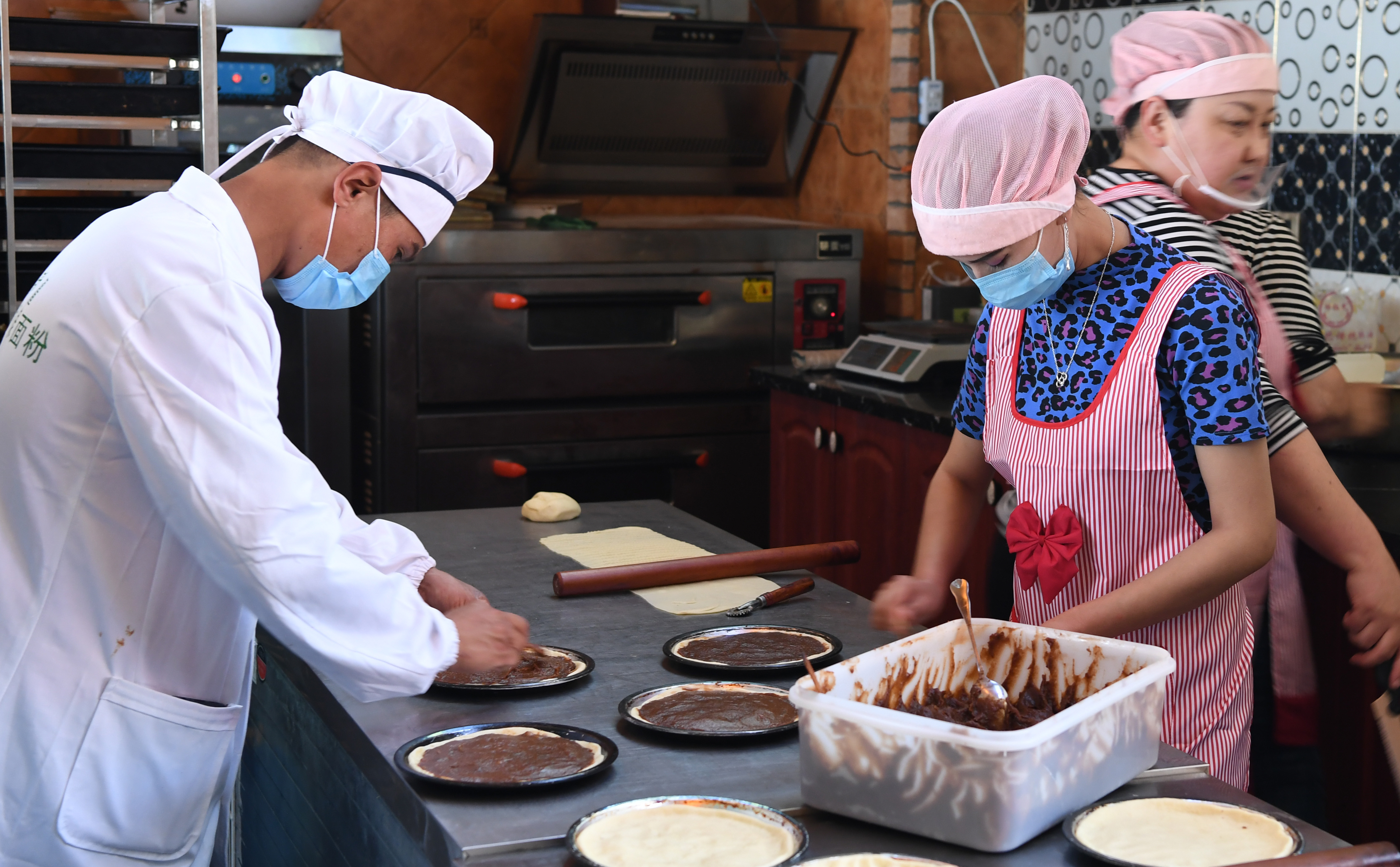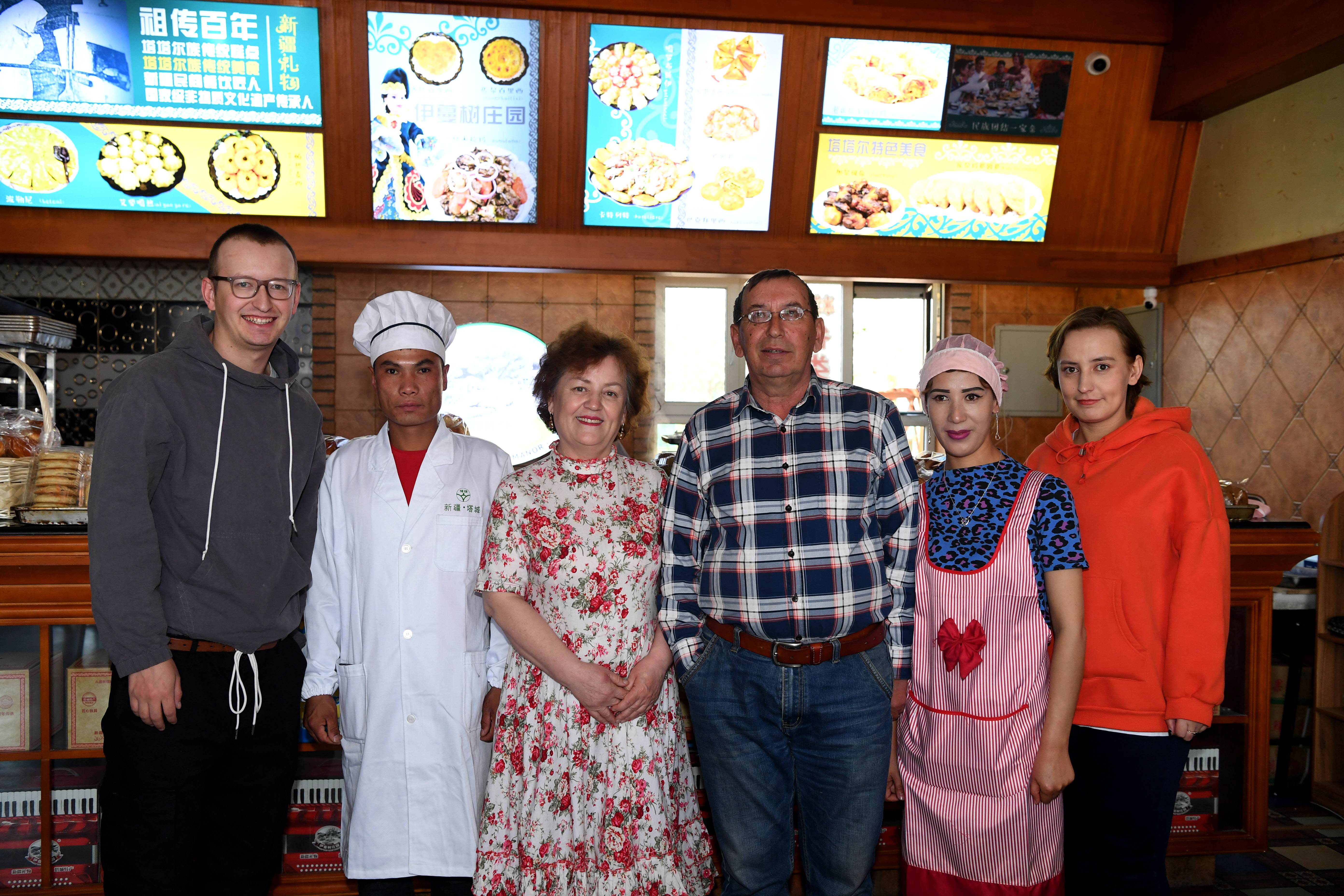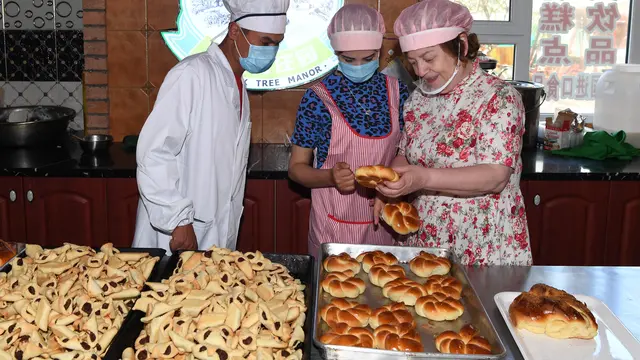In the morning of Tacheng city, a sweet smell would greet you if you pass by the Granny Yang’s Bakery in the downtown area. Stepping into the bakery, you will see people busy with their baking and cooking.
The shop owner Zatuna Kalimwa was showing Ibadati Abrilzi and her husband how to make “Pirozhki”, a traditional Tatar ethnic dessert. The Russian-style counters are fully piled up with various kinds of desserts in sound order, as beautiful as exquisite artworks.
As a girl living along with the farmland and desert, Ibadati Abrilzi has never thought of moving into the city and running a“sweet”business.
The post-90s Uyghur girl had been living with her husband in Shache County, northwest China’s Xinjiang Uygur Autonomous Region, which is one of the remaining poverty-stricken areas in Xinjiang at present.

The couple is working in Granny Yang’s bakery in downtown Tacheng, northwest China's Xinjiang Uygur Autonomous Region, April 17, 2020. (Xinhua/Sadat)
In March, the couple arrived at Tacheng City, approximately 2100 kilometers away from Shache County by train. After a brief training, they became bakers of a Tatar flavor bakery instead of farmers.
Speaking in Mandarin,not so fluently, Ibadati Abrilzi told Xinhua reporter that she is a mother of two children and had only received primary schooling. Her whole family used to live a poor life by planting cotton. With the arrangement of the local government, she and her husband got opportunities to work outside the village. Fees of board and lodging are covered by government during their internship and they have been learning pastry baking skills.
Although Ibadati Abrilzi has been here for less than a week, she is so smart that she acquires baking techniques swiftly. She spent every afternoon in improving her new skills from Zatuna Kalimwa’s baking experience.
“The softness of the dough determines whether the bread is fluffy or not. It also affects the taste,”she said.
“We are worried that our earnings could not afford life in the city at the beginning,” said Ibadati Abrilzi. But after working for some while, she found her worries entirely unnecessary. “Our earnings during the internship amount to over 4000 yuan, and it could be higher as a full employee. We even plan to open our own pastry shop in our hometown once we save enough money.” Ibadati Abrilzi added.
There are other people from Hotan Prefecture and Kashgar Prefecture in Tacheng. Some of them were employed in village-run enterprises and private enterprises, while others were working in public welfare positions.
According to the Department of Human Resources and Social Security of Xinjiang Uygur Autonomous Region, Xinjiang has paid more attention to the spare labor force from poor households in the ten remaining poverty-stricken counties of three prefectures in southern Xinjiang since this year. Authorities have spared no effort in promoting the organized employment transfer and personnel service. And Xinjiang plans to help the spare rural labor force to realize employment transfer by more than 2.7 million people this year through measures of local employment and vocational training.

The couple and the bakery owner Zatuna Kalimwa pose for photo in Granny Yang’s bakery in downtown Tacheng, northwest China's Xinjiang Uygur Autonomous Region, April 17, 2020. (Xinhua/Sadat)
(By Xinhua Writer Zhang Xinwen, Hao Yu, Ayinuer, Hang Zebo and video reporter Sadat. Zheng Wanyin, Huang Ju, Liu Jianing also make contributions to the coverage as interns)
 简体中文
简体中文

